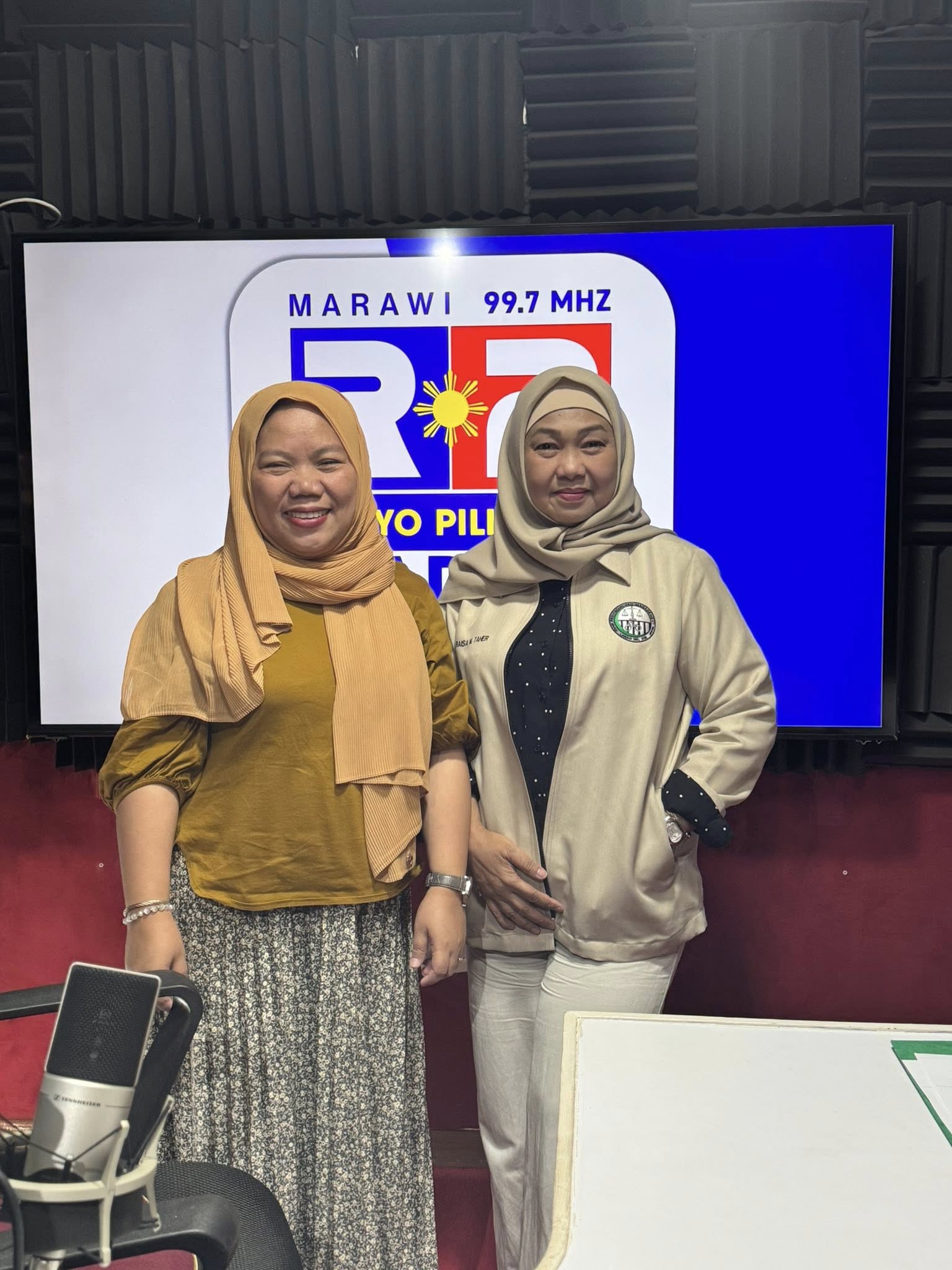By Aliah Pacalna Cali-Pascan, JD., DPA
MSU Marawi City – The airwaves of Radyo Pilipinas Marawi (97.5 FM) resonated with stories of rehabilitation and hope last Friday, July 25, 2025, as Admin Officer Raisa Taher who is member of Federation of Women Royalty League and Bae a Tomanor (B’TARA) from the Lanao del Sur Provincial Jail graced the “ShuaraMSU Program.” Hosted by Dr. Aliah Pacalna P. Cali-Pascan, this insightful show, a collaborative effort between the Institute of Peace and Development in Mindanao (IPDM) of MSU Marawi City and Radyo Pilipinas Marawi, aims to foster dialogue and shed light on the transformative journeys within correctional facilities.
During her segment, Admin Officer Taher provided a comprehensive overview of the Provincial Jail’s operations, emphasizing its commitment to holistic rehabilitation and strategic community partnerships. She highlighted the invaluable support received from the Provincial Government of Lanao del Sur, noting how their Gender and Development (GAD) funds are strategically allocated to promote gender-specific programs and development initiatives within the facility. This partnership underscores the provincial government’s proactive role in the welfare of Persons Deprived of Liberty (PDLs).
Baelabi Taher assured listeners that the jail’s facilities are not only adequate but also well-equipped to meet the needs of PDLs. She proudly shared recent advancements in educational opportunities, including a visit from the Marawi City Division for learning assessments. This paves the way for PDLs to enroll in alternative distance learning programs, enabling them to achieve educational equivalency and prepare for formal learning paths upon release.
The broadcast also shed light on the rich cultural and community engagement integral to the jail’s approach. Admin Officer Taher mentioned the consistent assistance received during Ramadan from various organizations, such as the Federation of Women Royalty, illustrating strong community ties. The program also highlighted peer-to-peer learning sessions, promoting mutual support, and even scheduled exercise sessions among PDLs.
A particularly unique aspect shared was the engagement of married PDLs in crafting “Antwiras” (Maranaw decorations), showcasing shared responsibilities and cultural preservation. The Provincial Government’s support extends to this, providing capital for materials and compensating resource persons for teaching traditional crafts like “Baor” (Maranaw chests). The recent visit from TESDA further solidifies the jail’s commitment to equipping PDLs with vocational skills.
Addressing the spiritual diversity within the facility, Taher confirmed the presence of non-Muslim PDLs, including those from Wao Municipality, and the provision of a dedicated prayer room. She also shared inspiring anecdotes of non-Muslims embracing Islam within the facility, a testament to the appreciation and understanding fostered. Mental hygiene lessons are also a regular feature, recognizing the importance of psychological well-being.
Despite the jail’s lean administrative team of only three women personnel, mostly warden officers, their dedication is profound. Baelabi Taher explained how income generated by PDLs from selling their handmade crafts is reinvested to purchase essential sanitary and hygiene products for women PDLs – a practical and empathetic approach to their needs.
A poignant moment in the program came when Admin Officer Taher recounted a personal experience outside the jail. She shared her joy and amusement upon being approached by a former PDL at a mall. Initially unrecognized out of uniform, the individual’s mention of his tasks within the facility brought recognition and a heartwarming realization. “I was so happy and amused that indeed, you can see the change. He has become transformed into a good person,” Taher recalled, underscoring the jail’s success in turning individuals from societal liabilities into valuable assets, a theme often discussed in rehabilitation sessions.
The “ShuaraMSU Program,” with Dr. Aliah Pacalna P. Cali-Pascan at the helm and featuring Admin Officer Raisa Taher, provided Marawi and its listeners with a rare and uplifting glimpse into the vital work being done at the Lanao del Sur Provincial Jail – a place where rehabilitation is not just a concept, but a lived reality, nurtured by strong partnerships and unwavering dedication.



